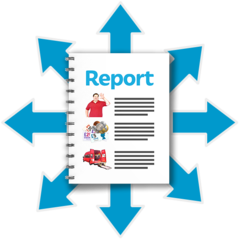Today the Care Quality Commission (CQC) have published their report about the review of ‘do not attempt cardiopulmonary resuscitation’ (DNAR)decisions during the COVID-19 pandemic.

The report is called ‘Protect, respect, connect – decisions about living and dying well during COVID-19’.
Learning Disability England was part of the Expert Advisory Group, which means that members fed their thoughts and experiences into the inquiry.

The Department of Health and Social Care asked CQC to conduct a rapid review of how DNACPR decisions were used during the coronavirus pandemic, building on concerns that they were being inappropriately applied to groups of people without their knowledge.

Ben McCay, Chair of the trustee’s at My life My Choice who has a learning disability said:
” No one should ever have a DNAR put on them without them knowing or being part of the decision. All people with learning disabilities have the right to make decisions about their own health, and what treatment they have. Medical professionals should make sure they understand how to include us in ways that work for each of us as individuals, listen to us and respect our wishes”.

The CQC report highlights ‘worrying’ variations in people’s experiences of do not attempt cardiopulmonary resuscitation (DNACPR) decisions during the pandemic.

While there were some examples of good practice, CQC also heard from people who were not properly involved in decisions, or were unaware that such an important decision about their care had been made.

Kate Chate, family member and Learning Disability England spokesperson said:
“DNARs and advanced care planning are very important things to discuss. But decisions MUST be made in a person centred way that respects the wishes of the person with learning disabilities. Discussions with the person, their families and wider circle of support are crucial to making the right decisions for each individual”.

Among its recommendations Protect, respect, connect – decisions about living and dying well during COVID-19 calls for the establishing of a Ministerial Oversight Group – working with partners in health and social care, local government and the voluntary sector – to take responsibility for delivering improvements.

The findings of the review are that there needs to be a focus on three key areas:
1. Information, training and support
2. A consistent national approach to advance care planning
3. Improved oversight and assurance

Alex Ruck-Keene of 39 Essex Chambers has recorded an updated version of his shedinar on DNACPR decision-making and advance care planning to help people get the law right in this area as a response to the report.

Scott Watkin BEM, organisational member and Rep Body Co Chair said:
“We welcome the findings of this inquiry and report. The experiences of people with learning disabilities having inappropriate DNARs recorded is a longstanding one, though the pandemic has highlighted the issue. We look forward to seeing the recommendations of the report implemented so no one with a learning disability, their loved ones or the paid supporters in their lives has to experience an inappropriate DNAR in the future”.

Learning Disability England members and partners have campaigned and worked together throughout the pandemic to make sure people have the information and resources they need to think about advanced care planning and challenge inappropriate DNAR decisions.


